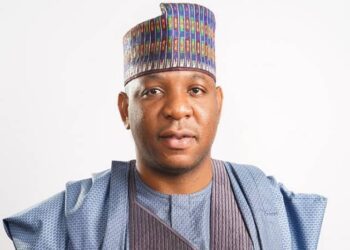After many years of crisis between farmers and herders across Nigeria, the 17 southern governors on May 11 resolved to ban open grazing of cattle in their states. BENJAMIN SAMSON in this report wonders if the Asaba resolution is the beginning of the end for open grazing in the country.
The governors who made the decisions were Rotimi Akeredolu of Ondo state; Gboyega Oyetola of Osun state; Kayode Fayemi of Ekiti state; Seyi Makinde of Oyo state; Dapo Abiodun of Ogun state and Babajide Sanwo-olu of Lagos state.
Other governors at the meeting where the resolution was made were: Okezie Ikpeazu of Abia state; Emmanuel Udom of Akwa Ibom state; Willie Obiano of Anambra state; Diri Duoye of Bayelsa state; Ben Ayade of Cross River state; Ifeanyi Okowa of Delta state; Dave Umahi of Ebonyi state; Godwin Obaseki of Edo state; Ifeanyi Ugwuanyi of Enugu state; Hope Uzodinma of Imo state and Nyesom Wike of Rivers state.
The governors said the incursion of armed herders, criminals, and bandits into the Southern part of the country had presented a severe security challenge such that citizens have been unable to live their normal lives.
They, therefore, resolved that “open grazing of cattle be banned across Southern Nigeria; that development and population growth has put pressure on available land and increased the prospects of conflicts between migrating herders and local populations in the South. Given this scenario, it becomes imperative to enforce the ban on open grazing in the South (including cattle movement to the South by foot).”
Open grazing, insecurity
Over the years, open grazing has led to conflicts between farmers and herders, leading to deaths and loss of crops in many states. Both herders and farmers often raise allegations and counter allegations against themselves. The senator representing Ikot Ekpene Senatorial district, in Akwa Ibom state, Christopher Ekpenyong, noted that the ban of open cattle grazing will end the constant clashes between herders and farmers.
Ekpenyong told Blueprint in an interview that the action of the governors was commendable, adding that those opposed to that decision taken by the seventeen Southern governors do not have the interest of the country at heart.
He said, “I am totally in support of the decision of the governors of the Southern Nigeria to ban open grazing of cattle in their respective states. It is highly commendable. The ban is very germane to curbing the violent and persistent clashes between farmers and pastoralists in the southern region.
“In fact, for the first time in recent times I feel so happy that the governors have seen the need to come together despite party affiliations to discuss and make proactive decisions on issues bedevilling their states and the region. I am also 100 per cent in support of others decision they made at the Asaba meeting, including the restructuring of Nigeria.
“And Nigerians should disregard those opposed to the open grazing ban. Anyone opposed to such steps to ensure peace among Nigerians does not have the interest of this country at heart. The governors took the decision as part of strategy to address the insecurity caused by the farmers and cattle herders’ clashes. It is a cause of concern. And as the chief security officers of their states, the safety of their citizens should be their primary responsibility.”
Similarly, a security expert, Victor Odey, told Blueprint that if not politicised, the decision of the governors to ban open grazing has the potential of curbing farmers, herders’ violence in the country. Odey, the managing director of Eagle Security Limited, said the ban may have both positive and negative effects.
“On one hand, it will definitely reduce the issue of criminal herdsmen kidnapping because the alibi of staying in the forest in the guise of rearing cattle will no longer be there as a cover. More so, it will also put a stop to the herders, farmers’ crisis in the South, North and the Middle Belt.
“I’m afraid if no compromise is reached between the northern governors and their southern colleagues on this issue, it could lead to another bigger crisis altogether. This is beside the Fulani’s expected revolt should the plan come into action. Every side needs to tread softly,” he said.
On cattle rustling
In his view, Governor Abdullahi Umar Ganduje of Kano state had earlier called on the federal government to enact a law banning the movement of cattle from the North to other parts of the country in order to resolve the incessant clashes between farmers and herders.
The governor made the call in an interview with journalists after a special lunch which the All Progressives Congress (APC) governors had with President Muhammadu Buhari at his Daura private residence. He said having a ban on movement of herders would also address the challenge of cattle rustling.
On how far he had gone with the Ruga project in his state, Ganduje said, “We are building a Ruga settlement in Samsosua Forest, our border with Katsina and we have succeeded in curtailing the effect of banditry in that area.
“So, we are building many houses, we are constructing a dam; we are establishing a Cattle Artificial Insemination Centre; we are establishing a veterinary clinic and already we have started building houses for herdsmen.
“My advocacy is that we should abolish the transportation or trekking of herdsmen from the northern part of Nigeria to the Middle Belt and to the Southern part of Nigeria.
“There should be a law that will ban it, otherwise we cannot control the conflicts between herdsmen and farmers and cannot control the cattle rustling which is affecting us greatly.”
Controversies
However, the governors’ decision was criticised by many northern groups and individuals including the Attorney General of the Federation, Abubakar Malami. He said the governors’ decision “does not align with the provisions of the Constitution; hence, it does not hold water.”
“It is about constitutionality within the context of the freedoms expressed in our Constitution. Can you deny the rights of a Nigerian? If you are talking of constitutionally guaranteed rights, the better approach to it is to, perhaps, go back to ensure the Constitution is amended,” he said.
Akeredolu’s charge
But he was promptly tackled by Governor Rotimi Akeredolu of Ondo state, who insisted that the decision of the governors was “irreversible.” He said it was most “unfortunate that the AGF is unable to distil issues as expected of a Senior Advocate. Nothing can be more disconcerting.
Akeredolu urged Malami “to approach the court to challenge the legality of the Laws of the respective states banning open grazing and decision of the Southern Governors Forum taken in the interest of their people.”
“We shall be most willing to meet him in court. The decision to ban open grazing stays. It will be enforced with vigour,” Akeredolu, who is also a Senior Advocate of Nigeria, said.
Court verdict
Meanwhile, the Federal High Court, Abuja, on Thursday affirmed the right of Nigerian states to implement anti-grazing laws in their domains.
The court indicated this when it rejected a suit seeking to compel President Buhari to direct security agencies to enforce the Benue Open Grazing Prohibition and Ranching Law of 2017.
In her judgement delivered during virtual proceedings, the judge, Ijeoma Ojukwu, held that the court lacked the jurisdiction to entertain the suit. The suit was instituted by Mathew Nyiutsa against the president on the grounds that the president, by his oath of office, incurred a mandatory obligation to uphold and preserve the laws of the land.
The judge, in her ruling, also said the enforcement of the anti-grazing law having been validly passed by the Benue state House of Assembly, for instance, “lies with the state government.”
“It is not the duty of this court to adjudicate on. The plaintiff may have genuine concerns in respect of the facts averred, but there are procedures set out by law to address issues concerning citizens’ rights and violations.
“There is no contest that the Open Grazing Prohibition and Ranching establishment law 2017 was validly passed by the Benue state House of Assembly and that the law is still in force, especially as the law has not been struck down by any court of law or court of competent jurisdiction.
“The implementation, therefore, lies with the machineries of the state and law enforcement agencies like the police, whose duty is to maintain law and order and to secure lives and properties in accordance with Section Four of the Police Act.”
Buhari’s approvals
Also, President Buhari has expressed a strong resolve to address the conflicts of herders and farmers in a sustained and lasting manner that should lead to the emergence of a permanent solution to the frequent clashes between them, as well as the associated problem of the gun-wielding “killer herdsmen.”
His senior special assistant on media and publicity, Garba Shehu, who disclosed this in a statement in Abuja, said the president approved ranching and revival of forest reserves to address the lingering herdsmen attacks.
The statement read I part, “The president had approved a number of specific measures to bring a permanent end to the frequent skirmishes as recommended by Alhaji Sabo Nanono, the Minister of Agriculture, in a report he submitted and the president signed off on it back in April, well before the actions of the Southern Governors Forum which attempt to place a ban on open grazing and other acts of politicking intended by its signatories to demonstrate their power.
“It is very clear that there was no solution offered from their resolutions to the herder-farmer clashes that have been continuing in our country for generations.
“But the citizens of the southern states – indeed citizens of all states of Nigeria – have a right to expect their elected leaders and representatives to find answers to challenges of governance and rights, and not to wash their hands off hard choices by, instead, issuing bans that say; “not in my state.”
“It is equally true that their announcement is of questionable legality, given the Constitutional rights of all Nigerians to enjoy the same rights and freedoms within every one of our 36 states (and FCT) -regardless of the state of their birth or residence.
“With veterinary clinics, water points for animals, and facilities for herders and their families including schooling – through these rehabilitated reserves, the federal government is making far-reaching and practical changes allowing for different communities to co-exist side-by-side: supporting farmers to till their fields, herders to rear their livestock and Nigerians everywhere to be safe.”
MACBAN’s take
Likewise, the Miyetti Allah Cattle Breeders Association of Nigeria (MACBAN) has endorsed calls for a ban on open grazing, but urged the federal and state governments to provide grazing reserves with necessary infrastructure and social amenities. It called on the federal government to ensure that herdsmen from neighbouring countries “don’t enter Nigeria with cattle without permit.”
Addressing journalists in Kaduna, the national patron of Miyyeti Allah and Sarkin Fulani of Nasarawa state, Senator Walid Jibrin, said, “Many African countries are shying away from open grazing and herdsmen movement coming up with better alternatives by provision of grazing reserves.
“In Zimbabwe, as a result of the change, a cow produces meat worth seven cows in Nigeria and a cow produces milk worth six cows in Nigeria. To discourage open grazing, the federal government should stop the entry of cattle to Nigeria from ECOWAS countries by amending Article 3 of ECOWAS Protocol especially referring to free movement of cattle and other livestock without any special undertaking.
“The federal and state governments should come to the rescue by providing grazing reserve centres equipped with hospitals, nomadic schools, electricity, boreholes, cattle markets with modern slaughtering centres, open market to our Fulani women to enable them remain in one place to sell milk instead of their house to house roaming about exposing our rich culture and religion.
“Open grazing practice is getting outdated internationally; the 21st century may never accommodate it. When you look at what is happening internationally, Nigeria can never continue with traditional open grazing practice. To effect a change, the Fulani elite should come out with alternatives to open grazing and advise the Fulani in Nigeria accordingly.”
Collaboration
Meanwhile, Delta Governor Dr Ifeanyi Okowa, has called on the federal government to support willing states to establish ranches as alternative to open grazing.
Okowa made the call on Sunday at the third session of the 15th Synod of Asaba Diocese of Church of Nigeria, Anglican Communion, held at St. John’s Anglican Church, Okwe, Oshimili South local government area.
He said federal government could not be thinking of increasing food production and putting food on the table when herders were destroying farmlands with their cattle.
Okowa noted that prices of food items had gone up “because farmers cannot go to their farms for fear of being attacked by armed herdsmen and bandits.”
“The federal government should support the development of ranching because it is in the best interest of the country. I want to thank God for Delta state. We have challenges in almost every state in this country, but I want to thank God for the relative peace in the state. I know we still have farmers, herders’ clashes in Delta, of which our Southern governors have come out to make a statement and we are going to follow it through.
“Thank God, our Northern brothers are beginning to realise that the suggestions we made were right and they are for the best interest of this country.
“We just hope that the federal government will put things together that will enable us be able to stop open-grazing. We know open-grazing can’t be stopped in one day, but an action must be started and pursued in such a manner that we are able to truly ensure that the cattle in this country are properly grown in the ranch in such a manner that we would not have the cattle destroying people’s crops,” he said.




